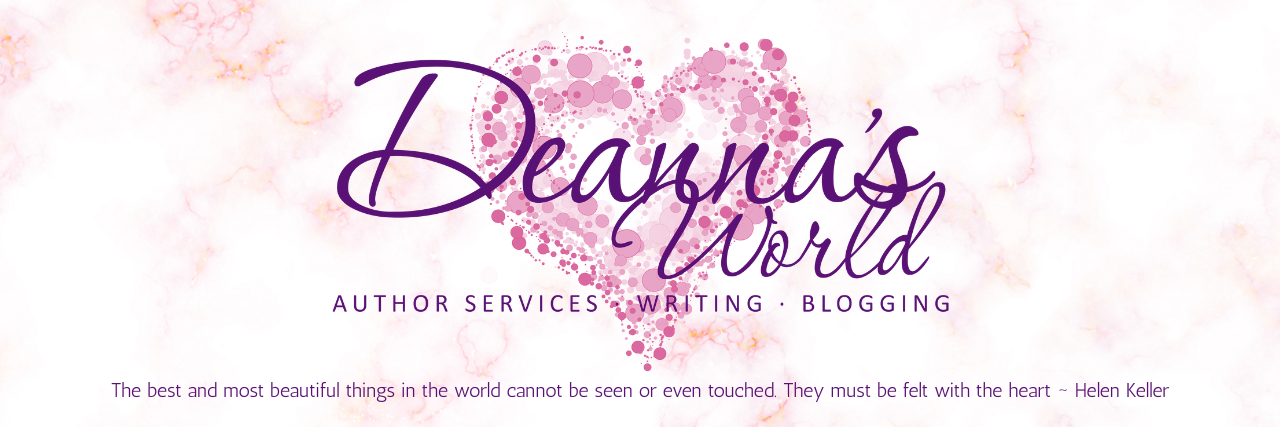
A little while ago I posted in a book group about buying books from authors when they are published (whether the reader reads them right away or not) as opposed to waiting till the series is complete. The post was focused solely on books that are a part of a series and that impacts an author or a publisher. The response was varied and I won't go into any detail about it here because that's not the point of this post. I will, however, share what I wrote below.
Here's the thing based on the varied responses I got - many supportive, many defensive, many offended. The reading culture has changed a great deal with the advent of self-publishing and with Kindle and Kindle Unlimited.
In the time before indie publishing, traditional publishers would release books as the authors are contracted to write them and often authors do not publish more than one book a year, two if we are lucky, and sometimes, only a book every couple or few years. Those of us who grew up reading during that time would have had to learn to be patient between books in a series. Look at the extremely popular Guild Hunter series and Psy-Changeling series by Nalini Singh. Only a book a year. We are fortunate with her books though because she can write up to three books a year, we get one of each plus an extra something else each year. Similarly with Jayne Ann Krentz aka Amanda Quick. A book per series a year.
Publishing has changed tremendously in the last three to five years. Indie publishing is bigger than ever, and there are more indie authors than ever before. There are even many traditionally published authors who have moved into indie publishing while others are hybrid authors with books that are traditionally and indie published. Authors have found they can make a living with self-publishing.
How has that influenced reading habits and the demands of readers of today? Well, if you are an indie author and you publish (particularly) with Amazon, then you'll know there is such a thing called a "thirty-day cliff." This means that to get your book promoted, have visibility in the Amazon Kindle store via Amazon's algorithms; the newly released book has the greatest visibility within the first thirty days. After that, it rapidly falls off, and if you want to maintain the visibility and therefore sales or page reads (if you're in Kindle Unlimited), you'll need to release another book close to or at the end of the thirty-day cliff. This builds momentum, maintains visibility, and maintains sales and page reads. This is a rather simplistic explanation because other factors come into play as well, such as marketing, advertising spends, ad impressions, click-throughs, and sales, but you catch my drift.

I point this out because many authors depend on Amazon to make a living by publishing books. Amazon's model and algorithms (rightly or wrongly) are directing authors towards maintaining sales and therefore, their incomes by encouraging them to do something known as "rapid release" which means releasing new books in a series once a week to the end of the series over a several week or several month period, or releasing a book a month to maintain the thirty day cliff and hence, their visibility and income.
This, in turns, drives reader expectations. Readers of today have gotten used to seeing books from their favorite authors or new authors for them to try regularly. Much more regularly than what used to be a book a year. I'm not saying it's good or bad, right or wrong. I'm just saying that reading habits and expectations have changed.
Readers are also a lot more vocal and demanding about more books in series they like if what I see in the various books groups I'm in is any indication. There's always the clamor for a popular series for more books, more frequently. Often within days of a new book coming out. It's not fair, is it? I always say it's such an inequitable balance. It takes an author months or years to write a book, and we devour it in hours.
Readers are putting more demands and more pressure on authors to produce more, write more, write faster. And of course, the Amazon model contributes to this for the author too. And of course, with the access these days that readers have to authors via social media, book groups, etc., authors are aware of the demand for more. For any author, any demand for more of their books and if there's a readership out there for their books, it's a good thing. It's a balance, isn't it? Between meeting voracious reader demands, releasing often enough to make a living, and not caving under the pressure.
I've seen one author post that she had released close to ninety books in the last twelve months. Wow! That's some seriously crazy output, and her fans are ravenous. That’s a lot of hours of hard work, butt in chair, writing.
I've also seen another author explain that they intend to finish a series, but since the series is not doing well, they are focusing on other works that are selling, and still producing a book a month.
I know of a few other authors who write close to two hundred thousand words a month and release two or three books a month.
I'm not going to even comment about what that means to the quality of the books being produced when an author has to crank out a book or two or more a month because that is varied and subjective. I don't know what each author's level of creativity and quality is, and I think that will vary from author to author. I think I once read an article about the great Nora Roberts and she said she could realistically write three to four books a year for her to maintain the kind of high-quality product she is happy with and that her readers have come to expect from her. To each author their own.
Mostly, the point I'm trying to make in a very roundabout way is that expectations have changed. The publishing industry has changed. Authors and readers need to find a balance between being happy with what's a reasonable output in new books per year versus what's available to read at any given point in time. Particularly for authors who have crazy impressive output, that kind of output equates to untold hours of hard work. As someone who just came off a year of working seventy to eighty hour weeks, six to seven days a week, let me tell you, that kind of effort takes a toll on the body. There are health risks to consider too. Work life balance is a thing on top of trying to keep readers happy.

For me? Personally? There are more books than ever before. There are more series than ever before. I can barely keep up with books I am interested in reading. I think my reading speed is pretty average. I can read between ten and twenty books a month in a good month. In that one month, I'm pretty certain there are thousands and thousands of good books published of which many I am interested in reading. My TBR is so out of control I've given up on keeping track entirely.
So yeah, buy books when they are released if it's a series you are interested in reading. Read them when they come out. Refresh or reread if you need to between books, but rest assured, there will always be a surplus supply of good reading material out there because times have changed, publishing has changed, and authors and readers have changed.

Bottomline, if you love an author. Buy their book, read it, leave a review.
Much love to all the wonderful authors who spend hours creating worlds that entertain and take us away for a few hours and big gratitude to the readers who support them.
Find Deanna around SOCIAL MEDIA:

Morning Deanna
ReplyDeleteWell said I totally agree with that, I only said the other day that there are so many books being released that I can barely keep up and I too read between 10 and 20 books a month, I love to keep up with my favourite authors and I love to try new to me authors. I feel for the authors the pressure that is being put on them for more books must be really hard, but they do this because they love it and they need to earn money to keep it up, I will support them as much as I can so as I keep getting fabulous stories to read :)
Have Fun
Helen
So many new books coming out so fast now and I can't read any faster than I do.
DeleteGreat article. I'd love to write a whole lot faster - not only for my readers, but to make up for years of lost time. Publishing is an interesting beast at the moment, to say the least.
ReplyDeleteFrom my perspective, I think an author should write as fast or as slow as necessary to produce a quality book and that he/she has given the book the attention it deserves.
DeleteInteresting article and it all rings true. Self publishing has unlocked the market, which means more books than ever and interesting times for both publishers and authors.
ReplyDeleteDefinitely. The entire industry has been in a state of flux for the last few years.
Delete